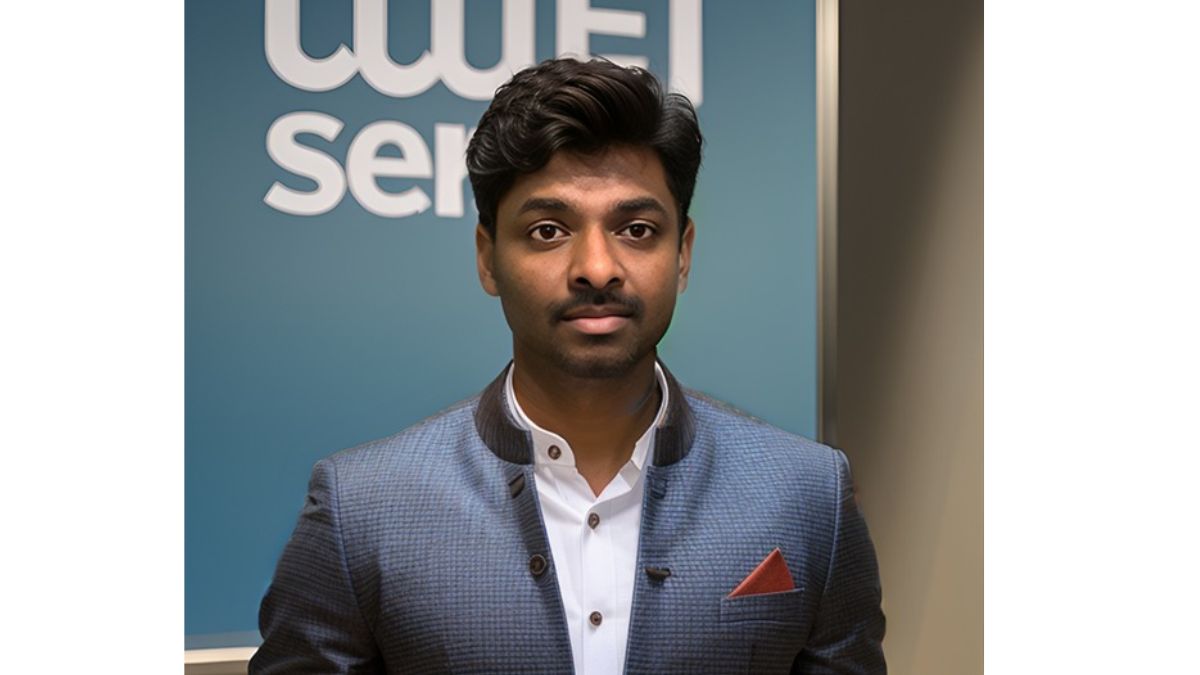New Delhi [India], June 14: Ethical AI and cloud innovations are transforming the insurance industry, driven by leaders who combine technical expertise with a strong sense of responsibility. Radhakrishnan Arikrishna Perumal is one such leader – a Principal Software Architect at Anchor General Insurance Agency in Frisco, Texas, with over 22 years of experience in enterprise software architecture and AI-driven transformation. Throughout his career, Perumal has spearheaded large-scale projects across insurance, healthcare, and finance, leveraging cloud computing and intelligent automation to modernize critical systems. Notably, he led the development of an AI-powered fraud detection platform at Anchor General that has saved the company millions of dollars by thwarting fraudulent claims. In this exclusive TechBullion interview, Perumal shares insights into his career journey, innovative projects, research contributions, and the philosophy guiding his work at the intersection of ethical AI and insurance technology.
You’ve authored several books on AI, cloud computing, and insurance. What drives your writing?
Perumal: Sharing applied knowledge is at the core of my mission. I’ve authored 16 technical books, including:
- AI-Powered Claims Processing and Fraud Detection in Insurance
- Engineering Intelligent Insurance Systems
- Architecting the Future: Innovations in .NET, ReactJS, and Cloud Systems
These works are designed to bridge the gap between academic AI theory and enterprise execution. They’re widely cited by developers, architects, and IT leaders. I also regularly publish peer-reviewed research (indexed by Scopus) on explainable AI, zero-trust architecture, and Azure scalability.
Q: Could you tell us about your career journey and your current role at Anchor General Insurance?
Radhakrishnan Perumal: Certainly. I’m the Principal Software Architect at Anchor General Insurance Agency in Frisco, Texas, with over 22 years of experience in software architecture and AI-driven enterprise transformation. Throughout my career, I’ve led large-scale projects in insurance, healthcare, and finance, with a focus on cloud systems and intelligent automation. At Anchor General, I spearheaded the design and deployment of an AI-powered fraud detection platform that has saved the company millions of dollars. These initiatives leverage Microsoft Azure, .NET Core, and cloud-native microservices to modernize our claims processing and underwriting workflows. We have also focused heavily on compliance, explainability, and seamless integration, allowing our systems to operate efficiently across various regulatory jurisdictions.
Q: Your work on AI-powered claims processing and fraud detection has been widely praised. What have been the results?
Perumal: We’ve seen dramatic improvements. By applying machine learning and rules-based AI to claims processing, Anchor General reduced average processing times by over 80% and increased fraud detection accuracy to approximately 90%. These results mean significantly faster claim handling for our customers and a substantial reduction in fraudulent payouts slipping through. The fraud detection engine I developed integrates data from internal and external sources, applies anomaly detection, and uses contextual language models for reviewing narrative notes in claims. As one of our press releases notes, “an AI-powered fraud detection platform … saved the firm millions of dollars in fraudulent claims.” This system not only optimizes financial outcomes but also improves customer experience and organizational agility.
Q: You also hold patents for innovative AI systems. Can you describe those?
Perumal: I currently hold two international patents in the realm of AI-enabled enterprise technology. The first is an AI-based behavioral biometric authentication system, which has been filed in India. This invention captures and learns a user’s behavioral signature, such as keystroke dynamics, cursor movement, and scrolling patterns, to validate identity during digital transactions, thereby preventing fraud and phishing attempts. The second patent, filed in the United Kingdom, is for an AI-enhanced inventory and supply chain optimization framework. It applies reinforcement learning and predictive analytics to dynamically balance inventory levels, reduce overhead, and minimize logistical bottlenecks. Both patents highlight my focus on converting theoretical machine learning concepts into practical, secure, and scalable solutions for the enterprise.
Q: You’ve authored many books on AI, cloud computing, and insurance. What motivates your writing, and what are some key titles?
Perumal: Writing is one of my primary avenues for sharing knowledge and providing mentorship. I’ve authored 16 technical books spanning AI, cloud computing, DevOps, and intelligent systems in the insurance industry. Titles such as “AI-Powered Claims Processing and Fraud Detection in Insurance,” “Engineering Intelligent Insurance Systems,” and “Architecting the Future: Innovations in .NET, ReactJS, and Cloud Systems” represent a synthesis of my practical experience and in-depth research. These books serve as guides for software architects, data scientists, and business leaders seeking to implement ethical and efficient technology solutions. Many of my works are referenced in academic syllabi, corporate trainings, and Scopus-indexed journals. They also help establish a consistent dialogue between academia and industry, bridging the gap between innovation and implementation.
Q: Can you highlight some of your recent research contributions in the areas of AI and cloud security?
Perumal: Absolutely. My recent research has focused on the application of AI in insurance, cloud-based cybersecurity frameworks, and responsible AI practices. In journals such as IJCNIS and IJST, we’ve published papers on explainable AI (XAI) in underwriting algorithms, where transparency is critical to regulatory approval and stakeholder trust. We’ve examined how attention mechanisms and interpretable models can help analysts understand decisions made by predictive systems.
On the cloud security front, we’ve published on implementing zero-trust architecture within Azure-based systems, emphasizing policy enforcement, identity protection, and micro segmentation. Our white paper on dynamic resource allocation for Azure Functions and Kubernetes-based deployments garnered significant attention, resulting in numerous citations. We’ve also begun exploring the implications of generative AI tools, such as Copilot and ChatGPT, on software architecture and developer productivity. All this research is deeply grounded in real-world insurance scenarios, ensuring that our innovations are deployable and impactful.
Q: You’ve received several honors, including becoming an IEEE Senior Member and winning the Asia Research Awards’ International Iconic Researcher in AI & Insurance (2024). How do these recognitions influence your work?
Perumal: These honors serve as affirmations of the work I’ve been doing for decades. Being named an IEEE Senior Member is both a technical and ethical badge of honor – it signifies long-term, meaningful contributions to the advancement of computing. Winning the Asia Research Awards’ International Iconic Researcher in AI & Insurance was particularly validating because it recognized our unique contribution at the confluence of insurance modernization and ethical AI development.
I was also nominated for the NOBLE Award for Outstanding Leadership in AI Innovation. These acknowledgments expand my global platform and reaffirm the importance of interdisciplinary thinking. They also bring a sense of responsibility. It’s not just about being innovative but ensuring that what we create contributes meaningfully to society. These awards inspire me to mentor more, collaborate more, and think globally about the future of ethical technology.
You’ve received several honors. How do they influence your professional path?
Perumal: I’m honored to be recognized as an IEEE Senior Member, and recently received the Asia Research Awards’ International Iconic Researcher in AI & Insurance (2024). I was also nominated for the NOBLE Award for Leadership in AI Innovation. These honors validate the business impact and ethical grounding of my work. But more importantly, they inspire me to raise the bar—for transparency, security, and real-world problem-solving through AI.
Q: You’re known as a mentor and thought leader beyond your company. How do you contribute to the broader tech community?
Perumal: Giving back is integral to my mission. I serve as a peer reviewer for IEEE journals and sit on editorial boards for Scopus-indexed publications in cybersecurity, AI, and software engineering. These roles help shape the direction of research and ensure quality standards are upheld. I’ve also spoken at over 20 conferences worldwide, including sessions at Microsoft Tech Summits, International AI Forums, and regional insurance tech events.
In my mentoring capacity, I guide young engineers on a range of topics, from system design to ethical dilemmas in AI. Whether it’s through LinkedIn articles, webinars, or direct coaching, I aim to instill a mindset that values both innovation and responsibility. I’ve helped dozens of professionals transition into cloud-native architecture roles and several students get admitted to top-tier universities and tech companies. At my core, I believe, “Leadership isn’t about position – it’s about influence and integrity.”
Q: What has been your experience serving as a judge and editorial member for international publishers like Springer, Elsevier, and Scopus?
Perumal: It has been both intellectually stimulating and a great way to give back to the academic community. Serving as a reviewer for Springer and Elsevier journals has given me a front-row seat to cutting-edge research. I’ve reviewed over 30 manuscripts in the last year, covering topics from AI in insurance to cloud-native application design. As an editorial board member, I help set standards for what constitutes impactful, ethical, and technically sound research. These positions also provide an opportunity to mentor early-career researchers, ensuring that innovation is grounded in rigor and aligned with ethical standards.
Q: Looking ahead, how do you see AI transforming the insurance industry, and what philosophy guides you as a tech leader?
Perumal: AI will fundamentally rewire how the insurance industry operates. We’ll see underwriting powered by predictive analytics and behavioral data, claims processing driven by natural language processing (NLP) and computer vision, and personalized policies tailored to micro-risk profiles. But alongside this disruption comes an urgent need for ethical oversight.
I often say, “Technology must be intelligent, ethical, and scalable—but above all, it must serve humanity.” AI can be powerful, but without ethical guardrails, it can also perpetuate bias or erode trust. That’s why I champion frameworks such as AI fairness audits, explainability layers, and hybrid human-in-the-loop models.
As a leader, my compass is clear: build systems that deliver value, ensure fairness, and uphold human dignity. We don’t just need innovative technologies—we need wise ones. I see my future efforts expanding into AI governance, contributing to global policy frameworks, and continuing to publish educational content that prepares the next generation of responsible innovators.
Q: Where do you see AI leading the insurance industry, and what’s your philosophy as a leader?
Perumal: AI is transforming insurance from a reactive to a predictive approach. But innovation must be intelligent, ethical, and scalable. I often say:
“True innovation isn’t about how fast systems perform. It’s about how responsibly they operate and how much they improve lives.”
That’s the mindset I bring to every design: human-centered AI, committed to transparency, resilience, and meaningful outcomes.
Beyond your current role, how do you contribute to the broader tech ecosystem?
Perumal: I serve on editorial boards, review papers for Scopus and IEEE journals, and speak at global forums, including Microsoft tech summits and AI conferences. I also mentor rising engineers, encouraging them to adopt ethical practices in AI. In my view, “architecture is more than code—it’s about designing systems that solve real human problems at scale.”
Q: Do you have any final message for technologists and future leaders looking to make an impact?
Perumal: I would say this—innovate with purpose. Don’t just chase trends; solve real problems. Learn the fundamentals deeply, but also be agile enough to adapt to emerging paradigms. Remember that your work will touch lives, and with that comes great responsibility. Prioritize ethics, inclusivity, and sustainability in all you do.
Build systems that last. Build teams that trust. And never stop learning. The future of technology is exciting, but we must ensure it remains human-centric. In all that I do—whether designing architecture, writing books, publishing research, or mentoring—the principle remains the same: “True innovation isn’t about how fast systems perform… It’s about how responsibly they operate and how much they improve lives.”
Learn More:
- Website: www.radhakrishnanperumal.com
- LinkedIn: linkedin.com/in/radhakrishnan-perumal-46755634
- Blog: radhakrishnanibm.blogspot.com



































